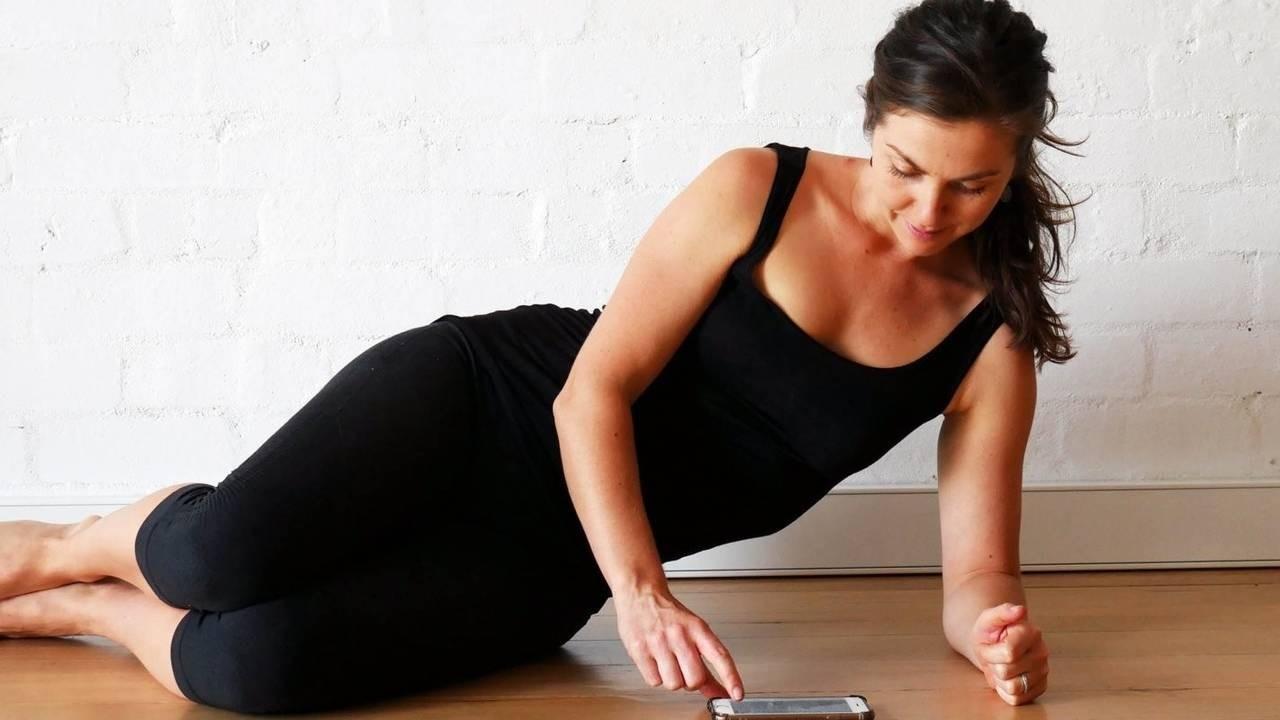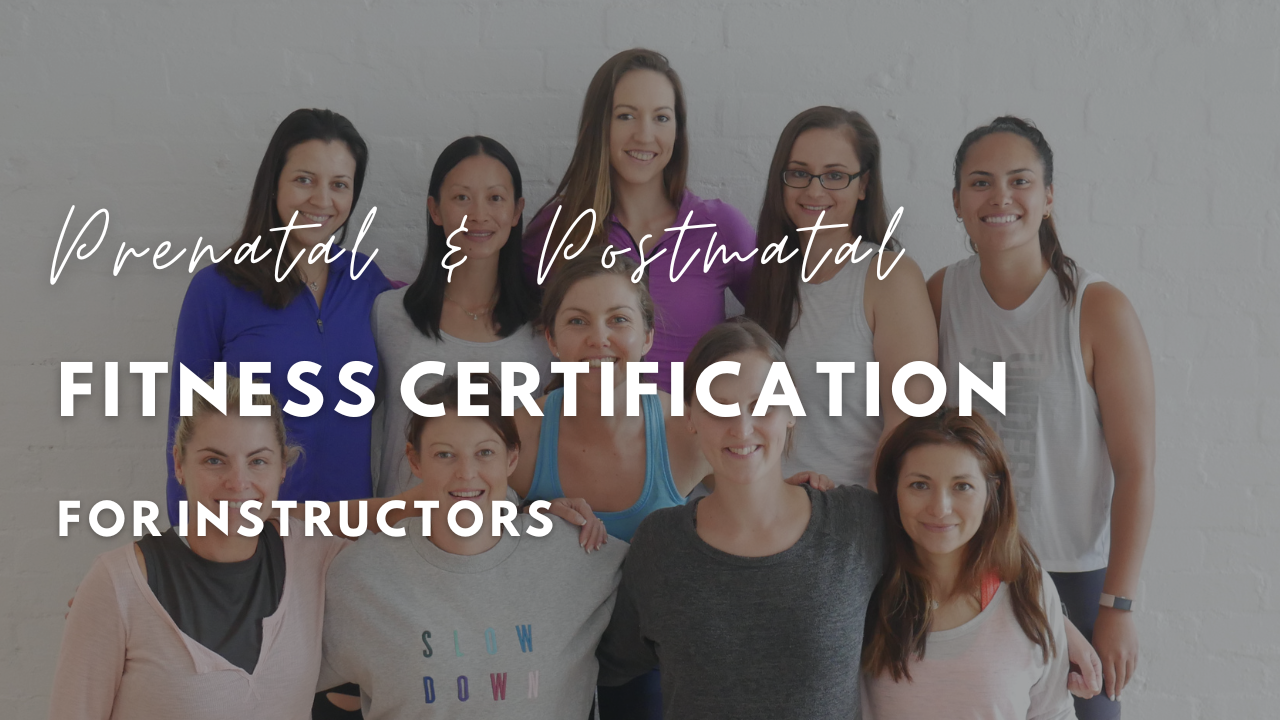What Exercises Should I Avoid during Pregnancy?

What Exercises Should I Avoid during Pregnancy?
Are you endlessly searching online about what exercises to avoid during pregnancy and only getting conflicting results? You're not alone. I am here to help you workout safely when pregnant.
You see, unfortunately there are a lot of "so-called" prenatal fitness experts willing to give their view in order to make a quick buck. This conflicting advice can not only be confusing, but also dangerous.
So I want to set the record straight to keep you safe throughout your pregnancy. And to ensure you follow-on after pregnancy with a safe and effective core rehab program.
Let's get to it.
Exercises to Avoid during Pregnancy
1. Any high impact exercise.
2. Planks or push-ups.
3. Exercises that places extreme pressure on your pelvic floor.
4. Traditional sit-ups and crunches.
5. Exercises where you are lying on your back
6. Exercises where you hold your breath.
7. Exercise in hot, humid weather.
8. Sports where there is a greater risk of falling (water skiing, snow skiing, riding motor bikes, horse riding).
9. Pregnancy Exercises that require lying on your back for long periods of time.
10. Exercises that require lying on your right side for long periods of time.
11. Exercises that require sudden twisting movements when standing.
12. Avoid intense bursts of movement followed by long periods of no activity.
Activities to Avoid during Pregnancy
1. Require extensive bounding, jumping, hopping or skipping.
2. Require bouncing (trampoline).
3. Involve sprinting, agility or a lot of running.
4. Ask you to do deep knee bends and squats.
5. Requiring full sit-ups.
6. Involving double leg raises.
7. You have to bounce when stretching.
8. Include any contact sport (football, basketball and volleyball).
9. Need a sudden change in direction or jarring movements.
Sports to Avoid When Pregnant
1. Contact sports.
This is an obvious one but you may unintentionally be participating in recreational contact sports in your backyard or at the park with family and friends.
The risk of injury increases significantly. Contact sports such as soccer, basketball, and hockey pose a risk to pregnant women, especially in the first trimester.
The physical contact inherent in these sports increases the risk of injury to both mother and fetus.
The unpredictable nature of these sports makes it difficult to control the level of physical stress and potential impact.
Even non-contact elements of these sports, like sudden directional changes and jumping, can pose a risk due to the laxity of joints during pregnancy caused by hormonal changes.
It's vital to prioritize the safety of the pregnancy and consider alternative forms of exercise that are low-impact and pose less risk.
2. Hot yoga
Prenatal Yoga is recommended. But hot yoga should be avoided due to the room temperature often reaching 100 degrees or higher.
Pregnant women should avoid such hot conditions. Exposing a fetus to high temperatures may cause hyperthermia which can lead to birth defects and premature labor.
3. Boot camps
Many boot camps involve using ropes, pushing tires, lifting heavy weights or boxing which all could cause harm to both you and baby.
Pregnancy is not the time to be starting a boot camp which is designed for a healthy population with little regards to the requirements of pregnancy.
4. Bouncing on a trampoline.
Whether it is using a trampoline in your backyard or one at a trampoline center it is best to avoid this exercise.
There is significant risk of falling. Your center of gravity is off balance due to pregnancy.
You could also sustain an injury to your ankles, knees, or wrists if you brace yourself when you land.
5. Lifting heavy weights.
There are some classes (power circuits) or other programmed classes that may involve heavy lifting weights. These classes can place greater stress on your joints and ligaments.
Due to the pregnancy hormone relaxin you should avoid these ballistic, dynamic heavy lifts. Your back wont like it.
AND trust me, the last thing you want when pregnant is crippling back pain.
Heavy weight training lifts that involve maximal isometric muscle contractions can place too much stress on the cardiovascular and musculoskeletal system.
6. High Intensity
Participating in a workout that involves raising and keeping your heart rate elevated for as long as possible is considered unsafe during pregnancy.
These sessions can be harmful to both you and baby. Low to moderate intensity level is best. Let's not try and set any new personal bests here.
7. Cross fit
CrossFit is often promoted as a competitive fitness sport.
It incorporates elements from high-intensity interval training, Olympic weightlifting, plyometrics, power-lifting, gymnastics, and other exercises.
Bounding, lifting heavy weights, high-intensity exercise and forms of gymnastics are obviously not recommended when pregnant.
If you were doing high impact exercises before pregnancy, then now is the time for a mindset change. That is, your goals have changed.
8. Stair climbing
A popular exercise trend that has emerged in recent years is stair climbing events involving some of our city's tallest buildings.
There is a risk of falling, tripping, over-exerting yourself and exercising in a hot environment.
You also increase heart rate to very high levels. You also overload your leg muscles.
9. Marathon running
While some pregnant women still choose to compete in a marathon when pregnant, it is recommended to avoid running such long distances.
This can lead to over-exertion. It can increase your core body temperature. There is the risk of dehydration. You are more susceptible to sustaining a muscle strain.
There is just no point to running extremely long distances. Please put your ego aside.
10. Abdominal trauma
I cringe when I see a pregnant women doing the old traditional crunches. And even worse, the plank!
There are so many better ways to strengthen your core when pregnant. Yoga and Pilates is a better option here.
Some abdominal strengthening exercises will be very uncomfortable. This is due to muscle weakness and the development of abdominal separation. A condition called diastasis recti.
11. High-altitude training
The human fetus develops normally under low-oxygen conditions. Exercise at high altitude may place further stress on oxygen delivery to the fetus.
12. Supine exercise position>
Avoid lying on your back. Why?
Because when you lay on your back the gravid uterus is known to compress the inferior vena cava. This can result in maternal hypotension and reduced blood flow to the fetus.
13. Lying on the stomach
For obvious reasons, please don't attempt any exercise or sport that may require you to lay on your stomach.
14. Standing Still for Long Periods of Time
Standing still for long periods of time is not recommended. For one, you could faint if too much blood pools in your lower extremities. Secondly, it places a lot of stress on your joints.
15. Scuba Diving
Scuba diving should be avoided as the pressure can result in birth defects and fetal decompression sickness.
What if I Did these Exercises before Pregnancy?
Great, if they helped you get fit. But they may not be appropriate now.
First, I want you to take the time and carefully select which exercises, workouts and classes you participate in when pregnant.
Your goals have changed. Your priorities have changed.
Now you're pregnant, you must take into account your growing baby. Because your growing baby may not respond well to certain exercises or sports.
What you were doing before getting pregnant may now cause harm.
How you exercise now may be determined by your pre-pregnancy fitness level. How you exercise now may also be determined by your previous exercise experience.
Any activities that have a low risk of falling, injury and joint and ligament damage should now be chosen.
Understanding the Impact of Exercise on Early Pregnancy
During your first trimester, it's crucial to understand the potential risks and limitations. The early stages of pregnancy are a period of critical development for the fetus, and your body undergoes significant changes that can affect how you exercise.
Be sure to start off your pregnancy by speaking to your healthcare provider before starting or continuing an exercise regimen. They can provide personalized tips and advice based on your medical history, fitness level, and the specifics of your pregnancy.
This ensures that any physical activity you engage in contributes positively to your pregnancy journey.
Safe Alternatives to Stay Fit
So now is the time for you to find safe alternatives for exercise during the first trimester as it is important for the health of both you and baby. Low-impact activities such as prenatal yoga, swimming, and walking are excellent choices.
These activities offer cardiovascular benefits without the high risk associated with more intense or contact-heavy exercises.
Strength training when pregnant can also be beneficial, as long as you perform each exercise with proper guidance and with lighter weights. The focus should be on maintaining fitness rather than pushing the limits.
Always remember to listen to your body and consult with healthcare providers to tailor an exercise plan that is safe for your unique pregnancy.
Takeaway
Use common sense! If it hurts, stop. If it doesn't feel right, stop. If you are at risk of losing your balance, don't do it.
Please avoid exercises during pregnancy that may harm you and your growing baby! Start with good habits in your first trimester and only participate in safe workouts throughout your pregnancy including the second trimester and third trimester..
If you have any specific questions then your doctor will be your best resource.






